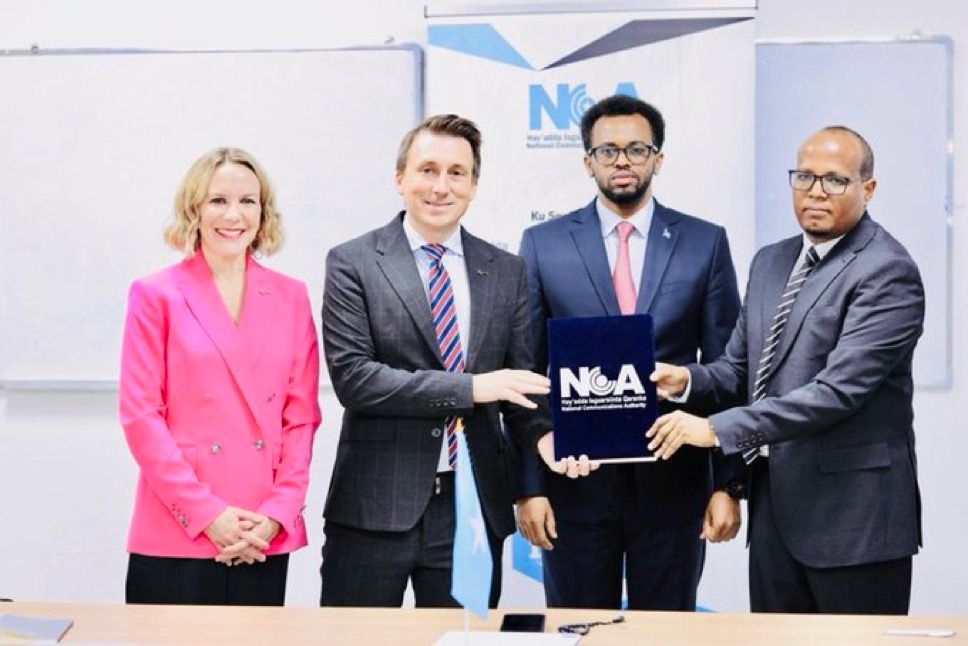The National Communications Authority of Somalia awarded a license to Elon Musk’s Starlink on Sunday, allowing it to start services in the country.
A ceremony held in the capital of Mogadishu was attended by government officials and representatives from Starlink, according to a statement on the authority’s website.
The announcement was made during the formal ceremony in Mogadishu on Sunday, attended by representatives from Starlink, senior government officials, and key stakeholders in Somalia’s communications and technology sector.
The decision paves the way for the satellite-based internet provider, owned by Elon Musk’s SpaceX, to begin offering high-speed, low-latency internet services across Somalia—including in some of the most remote and underserved regions.
Speaking at the event, Mustafa Yaasin Sheik, Director General of the NCA, hailed the move as a transformative moment in Somalia’s journey toward comprehensive digital inclusion.
“Starlink’s entry into Somalia represents a significant milestone in our efforts to bridge the digital divide in our country,” said Sheik. “This is about more than internet access—it’s about unlocking new opportunities for education, commerce, governance, and innovation.”
Minister of Communications and Technology, Mohamed Mo’allim, reiterated the government’s support for digital expansion and emphasized the importance of partnerships in achieving universal access.
“We welcome Starlink. This aligns with our vision to deliver affordable and accessible internet services to all Somalis,” he stated. “Our government is committed to creating an enabling environment for technological advancement that benefits every citizen.”
Starlink’s presence in Somalia is expected to dramatically improve internet connectivity, particularly in rural and conflict-affected areas where traditional infrastructure has long been unreliable or non-existent.
By leveraging its constellation of low-earth orbit satellites, Starlink offers a unique solution capable of delivering high-speed broadband to locations beyond the reach of fiber or mobile networks.
The move is widely seen as a step forward in boosting Somalia’s digital economy, improving public service delivery, and empowering communities with access to information, education, and global markets.
However, with this milestone, Somalia joins a growing list of countries across Africa embracing cutting-edge satellite technology to accelerate development and close the connectivity gap.
While Somalia’s Minister of Technology hailed the deal as a groundbreaking step toward modernizing the country’s digital infrastructure, security experts are sounding the alarm.
Starlink’s satellite-based technology — designed to deliver fast, reliable internet even in the most remote and inaccessible areas — could unintentionally become a powerful tool for terrorist organizations operating beyond government reach.
Unlike traditional internet services that rely on centralized infrastructure, Starlink’s system bypasses national controls, making it nearly impossible to regulate or restrict. Analysts warn that extremist groups could quickly exploit this technology to strengthen their communications, spread propaganda more effectively, recruit new members, and coordinate attacks with greater efficiency.
Although the Somali government envisions the deal as a catalyst for economic growth, education, and job creation, the reality is stark, without stringent oversight, Starlink’s presence in Somalia could fuel the very terrorist groups like al-Shabaab the government is struggling to contain.
Email your news TIPS to Editor@Kahawatungu.com — this is our only official communication channel


